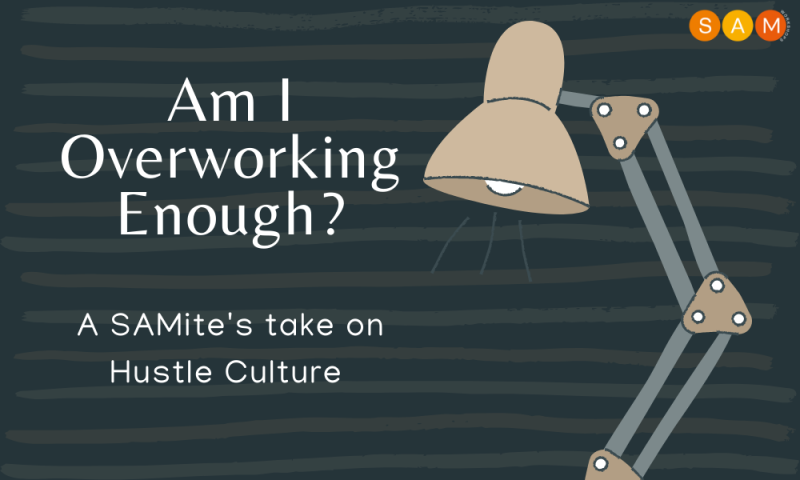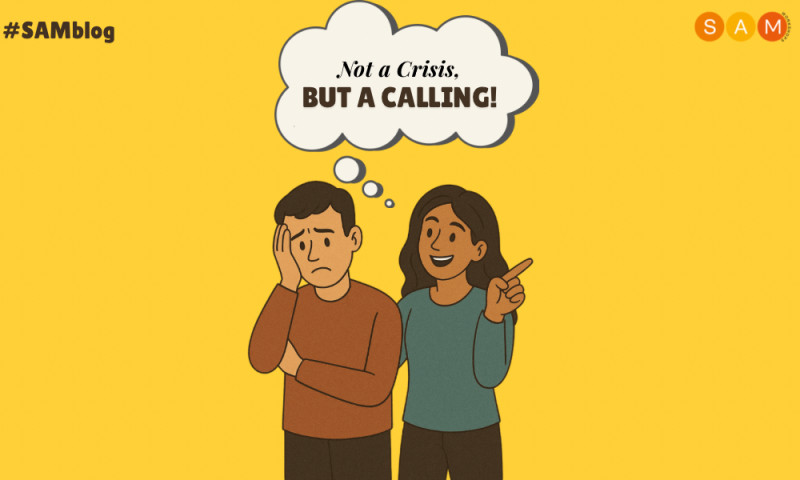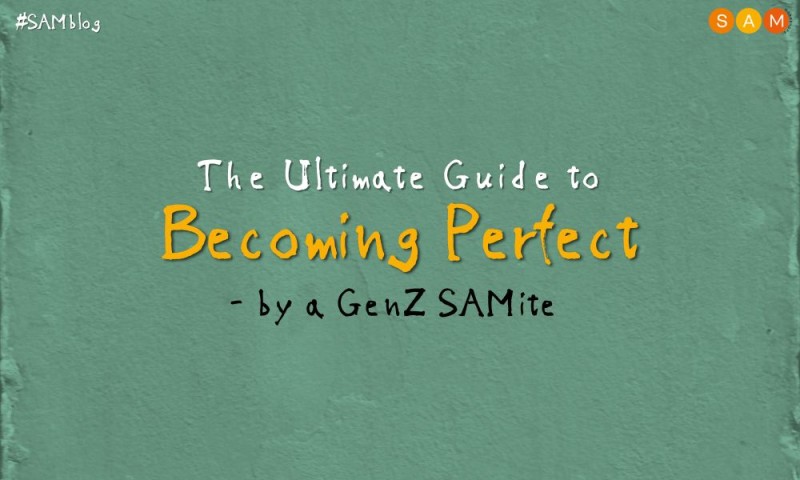The Oxford Dictionary defines the word ‘hustle’ as ‘a state of great activity’. But how do we perceive it?
We live in an age which believes that heart-wrenching experiences and back-breaking expeditions are a necessity if we wish to excel in life. The constant pressure of being the ‘lone-wolf’ who is ruthlessly devoted to success has become the ‘sigma rule’ for this generation. This glorification of hustling has led the youth to the main question of today:
“Am I overworking enough?”
‘One must have a dream worth more than sleep.’ No doubt, this quote can give an inquisitive mind the adrenaline rush it needs to get up and work for that dream! Except, sometimes, it may prove to be much more dangerous.
To ‘hustle’ is to constantly occupy oneself with work and be at it for hours on end. In many cases, any expectations of returns are frowned upon and people are expected to work for the hell of it. Hustling, in itself, is seen as a goal and not the medium towards attaining greater ends.
When we see most ‘productivity quotes’, in some form or another, they seem to endorse this culture. They endorse working to extreme levels, and consider any recreational or relaxation activities as antagonistic to this perception of hustling.
For instance, sleep, a basic living need, is seen merely as a waste of time. It is the first thing that a youngster compromises on for work. This culture of hustling - or as we may call it ‘Hustle Culture’ - fails to realise that the human body has a chronotype, or simply, a body clock. It is the natural inclination of our body to sleep and wake at certain times. In most cases, being an early bird or a night owl is not even in our hands! This body clock affects our appetite, our core body temperature and immunity. All of these influence our energy levels, which in turn, affect our overall productivity. Sleep, which most ‘productivity quotes’ look down upon, is actually very important for increasing productivity!
In fact, the Law of Diminishing Returns, a theory of Economics, tells us how, after the optimal level of capacity is reached, adding every additional factor of production will actually result in a smaller increase in output. This theory is the practical funda of life that the hustle culture completely ignores.
While the concept of long working hours is romanticized, living on the edge of piling deadlines is considered thrilling and success is seen as the result of a lifelong hustle, the symptoms of chronic sleep disorders, anxiety and stress are often ignored. With increased ‘cortisol’ production, a stress hormone that weakens the immune system, illness becomes regular. Shouldn’t we reconsider this adrenaline rush we get by hustling?
The work culture of Japan is the perfect example here. A nation long famed for its performative workaholism is the birthplace of the term ‘karoshi’, meaning ‘death from overwork.’ No, this is not an exaggeration. In fact, the case of Miwa Sado, a 31-year old journalist, was well reported, as she had suffered heart failure after working for over 159 hours. In a world where overworking is glorified and is seen as something worth adding to your CV, the dark reality gets foiled in the midst of glamourous gimmicks of extraordinary results.
A major flaw of ‘Hustle Culture’ is that it sees social circles as a hazard to professional development. Dr. Robert Waldinger, Clinical Professor of Psychiatry at the Harvard Medical School, in his TED Talk, ‘What makes a good life? Lessons from the Longest Study on Happiness’, says that while many young people think that fame, fortune and hard work will bring them happiness, it’s actually our social connections that are most important for our well being.
The Longest Study on Human Happiness, which began in the 1930s at Harvard University, gave us some valuable life lessons. First, having social connections is better for our health and well being. Second, having good relationships is not only good for our physical health, but also for our brains. Sometimes, happiness is lying in bed and realizing you broke a toxic cycle. Indeed, the generation born of and for hustle culture needs to reconsider its priorities. Japan has already.
Beginning to rethink its tradition, Japan has enacted the Work Style Reform Bill - the cornerstone of modernizing Japan’s way of working. Initiatives range from caps on excessive working hours to increased flexibility and designation of at least 5 days off of work. The previous Showa style of work, where individuals were completely dedicated to company life, is beginning to be abandoned. This is an amazing example of how a society that was long sustained on ‘hustle culture’ has begun to abandon it.
The drive to outdo the rest has been feeding us sweet poison in the name of hard work and hustle. It is time to get over this toxicity. It is time to reconsider our values and ultimate goals. It is time to take time to heal. How about some quotes on self-love?
Remember, lone-wolf is a paradox.




4 Comments
Hello just wanted to give you a brief heads upp and let you know a few of the images aren't loading properly. I'm not sute why but I think itss a linking issue. I've tried it in two diffetent internet browsers and both show the same outcome. http://Boyarka-Inform.com/
Sleep is as essential as money... Money can buy anything but not sleep... Well written in the article
Very relatable and an eye opener for all, it was the need of the hour
Very relatable blog...we really need to think over this